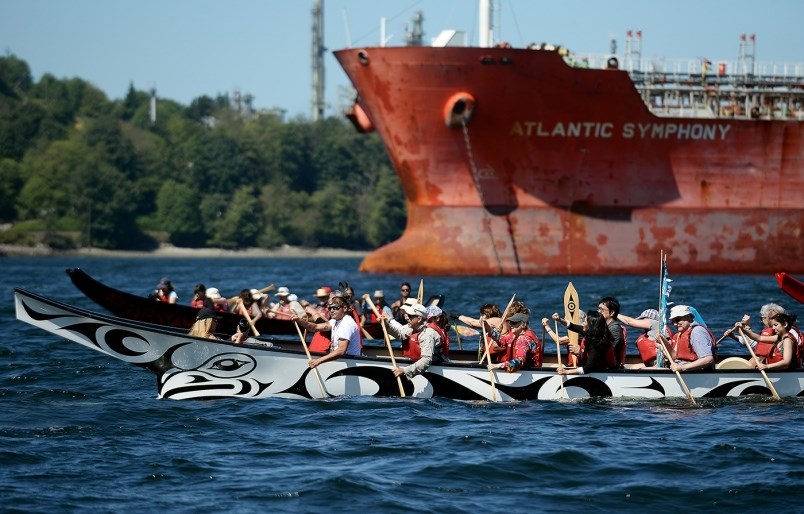The Federal Court of Appeal has dismissed a legal challenge by local First Nations to Ottawa’s decision to approve the Trans Mountain pipeline expansion a second time.
The court issued its decision Tuesday, saying there was no basis for interfering in the lower court’s decision. But leaders of both the Tsleil-Waututh and Squamish First Nations vowed the legal hurdle won’t be the end of the road in their opposition to the project.
At a press conference immediately following release of the decision, Indigenous leaders said they are weighing all legal options, including seeking leave to appeal Tuesday’s decision to the Supreme Court of Canada.
“This decision doesn’t change what we all feel ... and what we all know to be the truth,” said Leah George Wilson, chief of the Tsleil-Waututh Nation. “…Our work is not done.”
George Wilson added the decision’s upholding of what amounts to “reasonable” consultation of Indigenous people “sets a low bar for reconciliation.”
She pointed to Prime Minister Justin Trudeau’s comments about the importance of Indigenous reconciliation. “We need to see some of that now,” she said. “This project cannot go through.”
Squamish Nation spokesman Khelsilem echoed those comments, saying while “we are deeply disappointed with the court’s decision today,” it is only “one step among the many tools and options available.”
Khelsilem hinted that the decision green-lighting the pipeline expansion could lead to civil disobedience to stop the project. “B.C. has a long history of civil disobedience when it comes to environmental issues,” he said. “There are a lot of people who are willing to do a lot to defend our coast.”
Ottawa originally approved twinning the pipeline in November 2016, saying the project is in the national interest. That approval was overturned by the Federal Court of Appeal in August 2018, citing insufficient consultation with Indigenous people and a failure to properly consider potential impact on marine life from more oil tankers off the B.C. coast. The federal government launched another round of consultations. In June 2019, cabinet issued its second approval.
Indigenous people including the Squamish and Tsleil-Waututh nations asked the court to review the decision a second time. In December, their lawyers argued the government went into the new consultations having predetermined the outcome. But the court found there was no evidence to support that.
The court also rejected arguments that the second round of consultation wasn’t “reasonable,” saying the earlier decision didn’t require the government to begin the whole consultation process again but rather to address specific shortcomings through a “brief and efficient” process.
The court added the duty to consult doesn’t give Indigenous people a veto over the decision, writing “the failure to accommodate in any particular way, including by way of abandoning the project, does not necessarily mean that there has been no meaningful consultation.
“Where there is genuine disagreement about whether a project is in the public interest, the law does not require that the interests of Indigenous peoples prevail.”



